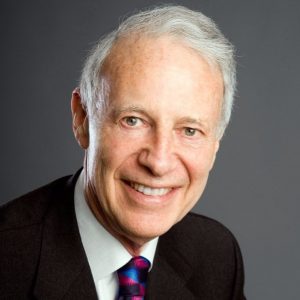Owen Spencer-Thomas is a media veteran, once hailed as BBC Radio London’s ground-breaking “legendary journalist”, and later a familiar face as a reporter with Anglia Television’s About Anglia. He spent a further ten years as Director of Communications for the Anglican Diocese of Ely and later set up a teaching website aimed at students planning to enter journalism.

He was made a Member of the Order of the British Empire (MBE) in the Queen’s 2008 New Year Honours for his charity work and services to the community. Two year later the University of Westminster awarded him an honorary doctorate (DLitt) for his services to journalism.
In this article, Owen warns of the dangers of extending privacy rights at the expense of press freedom.
Following her marriage to Prince Harry, the Duchess of Sussex sent a handwritten letter to her estranged father in August 2018. Extracts from this letter were published in the Mail on Sunday and Mail Online, and Meghan is seeking damages from the publishers, Associated Newspapers Limited.
This outcome of this case will set a new legal precedent on individual rights to privacy. However, more rigorous privacy law will almost certainly lead to the restriction of essential press freedom that keeps citizens informed – information that plays a vital role in maintaining a functioning, healthy democracy.
Broadcast and newspaper journalists must always keep up-to-date with changes in the English law. As such, the Media will be keeping a watchful eye on this prominent High Court case.
The judge’s decision could give rise to significant changes to the Law of Privacy which has become a rapidly developing area in recent years.
Historically, English common law has failed to recognise any general right of privacy and only offered limited protection through breach of confidence. However, the introduction of the Human Rights Act 1998 has remedied this deficiency. By incorporating the European Convention on Human Rights (ECHR) into English law, we now have a legal right to privacy.
This increasing protection afforded to the private lives of individuals has sparked debate as to whether the law gives enough weight to press freedom. Could tighter privacy laws be achieved at the expense of press freedom? Many journalists fear they could further erode the freedom of the press.
In an attempt to clarify the matter, the broadcasting regulators Ofcom state, “Any infringement of privacy in programmes must be warranted”.
The English law is still vague on deciding exactly what constitutes “warranty”. According to Ofcom, it means “where broadcasters wish to justify an infringement, they must demonstrate that public interest outweighs the right to privacy.”
Thus, to meet their regulatory and legal obligations, broadcasters must balance privacy with their right to broadcast information in the public interest. They must be able to demonstrate why an infringement of privacy is justified.
Meghan’s lawyers argue that the publication of these extracts to Thomas Markle was “self-evidently… highly intrusive”. However, the newspaper group’s barrister argues that “she must at the very least have appreciated that her father might choose to disclose it”. They further pointed out that the Kensington Palace communications team had been shown the letter before it was sent. It was therefore official and not personal.
The judge’s ruling, which is not expected until the autumn of 2021, will almost certainly further clarify the right of privacy. But further protection must be available to the media.
The freedom of the press is a principle that communication and expression through various media, including printed and electronic, should be considered a right to be exercised freely.
If journalism is to remain an effective watchdog of private and government action, a fair judgment will depend on a careful balance of the scales of justice.
A free press is fundamental to a democratic society. It seeks out and circulates news, information and opinion and holds those in authority to account.
Freedom of expression is a universal human right. It is not the prerogative of the politician. Nor is it the privilege of the journalist. In their day-to-day work, journalists are simply exercising every citizen’s right to free speech.
Email – [email protected]
Mobile – 07801 492151
































